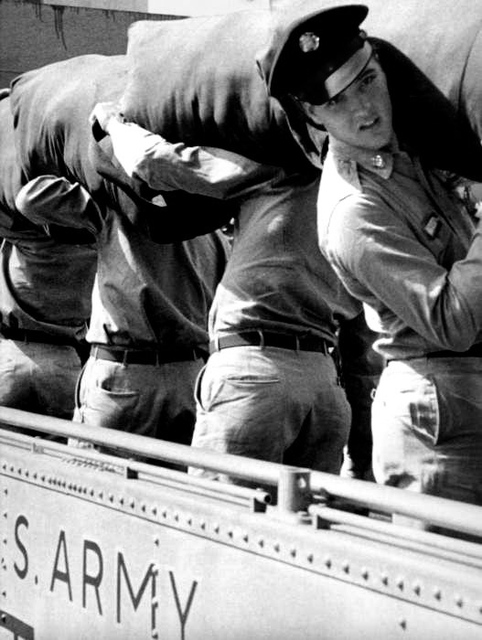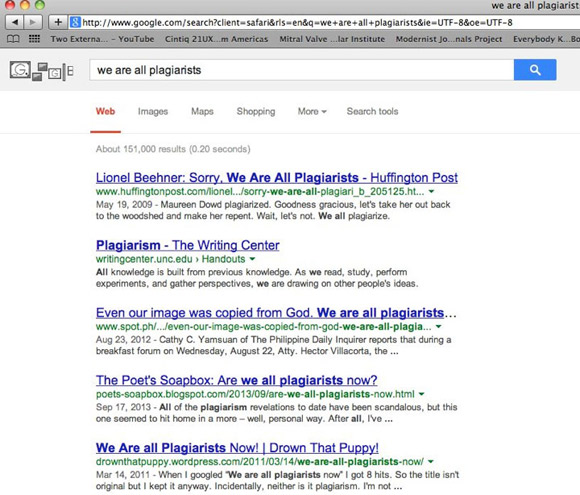1.
“At Berkeley, Krugman’s Warning Becomes Reality.” Salon’s Andrew O’Hehir writes a stirring essay about a new documentary about the California state university, about the veracity of everyone’s favorite New York Times columnist and economist, and about how “the entire neoliberal project” has been a disaster.
“In retrospect, I wonder whether Ronald Reagan’s assault on Berkeley wasn’t the zero moment of the conservative revolution, a magical melding of anti-elitism, anti-intellectualism and anxiety about government spending. Reagan and his supporters couldn’t understand why the Golden State’s taxpayers should fund a world-class research university, especially since it seemed to be producing radicals and dissidents in large numbers. Higher education was seen as an instrumental value, because we need to supply society with enough doctors and engineers and so forth, but never as a valuable public benefit in itself. More than four decades later, we see Berkeley chancellor Robert Birgeneau (who retired this year) tell a group of administrators and faculty leaders that state funding has fallen to 16 percent of the school’s annual budget, an all-time low. While he insists that Berkeley can find ways to maintain its “public character,” that’s almost a term of art at this point.So Reagan has won. While you won’t encounter any of that history directly in ‘At Berkeley,’ Wiseman has been observing American society and politics since the 1960s, and definitely understands the background to what he finds on the campus today. Like all of Wiseman’s films, detailed social portraits, ‘At Berkeley’ strictly adheres to the rules of the documentary style known as cinéma vérité. That means there is no narration, no on-screen names or charts or crawls of text, no talking-head interviews or other explanatory material. It certainly does not mean that the film pretends to be neutral or objective, or that no story is being told. Whether he’s shooting a field hockey game, a seminar on Thoreau, a lecture on the shifting understanding of cancer genetics or a group of workmen pouring cement in Berkeley’s football stadium, Wiseman captures the vibrant and diverse life of an institution in permanent crisis.”
2.

“Tom Cruise Did Not Make Widely Reported Claim That Acting Is as Tough as Combat.” CNN Chief Washington Correspondent Jake Tapper goes out of his way to clarify that the diminutive movie star’s comments that enraged veterans and service members across the world have been taken out of context. Oh, Internet. (TMZ, which initially “reported” this, has since removed its post.)
“The comments come in a section of the deposition where Cruise is being asked about time he has spent away from daughter Suri, either because of film or other commitments. ‘Now your counsel has publicly equated your absence from Suri for these extended periods of time as being analogous to someone fighting in Afghanistan,’ opposing counsel asks him. ‘Are you aware of that?’ ‘I didn’t hear the Afghanistan,” Cruise replies. “That’s what it feels like and certainly on this last movie it was brutal. it was brutal. ”Do you believe that the situations are the same?’ Cruise is asked. ‘Oh come on,’ Cruise says, ‘you know, we’re making a movie.'”
3.
“How Selling Out Saved Indie Rock.” For Buzzfeed, Jessica Hopper reports that, in the wake of the music industry’s implosion and the rise of a new generation of music-friendly marketing executives, many bands only survive by selling their songs for commercial use.
“Back in the early ’90s, when the music industry was thriving, commercials weren’t a way indie bands got ahead — the punitive value outweighed the relatively small financial gains bands made for licensing a song to a commercial campaign. Band manager Howard Greynolds, who looks after the careers of Iron and Wine and Swell Season, was an employee at indie label Thrill Jockey when two of its flagship bands, Tortoise and Freakwater, licensed a song for a 1995 CK One campaign. ‘I remember people calling us saying, I can’t fucking believe they did that, I can’t support this band anymore!’ says Greynolds…. A generation ago, refusing these kinds of offers was a way for bands to telegraph where they stood, the sort of thing that showed their allegiance to the underground and their community. It’s been nearly 30 years since Lou Reed hawked Honda scooters with ‘Walk on the Wild Side’ and 26 since Nike used (and was summarily sued for using) the Beatles’ ‘Revolution’ to sell sneakers, but the diminishing of this notion’s ability to outrage has sped up over the last decade….Such moves are barely even press-cycle talking points by now. Greynolds says what expedited this change wasn’t just the huge drop in record sales, but as layoffs swept through the record industry, contacts from labels and distributors went to marketing, advertising, and brands. “All of the sudden those were the people at music houses,’ says Greynolds. ‘People from your world. They might be feeding you a line of shit, but there was trust. They were different.’ These new players within the advertising industry proved to be capable navigators of both the ad world as well and the music underground. They could help forge lucrative connections between brands and cash-strapped bands — and their fan bases.”
4.
“Former Gay Propagandist SpongeBob SquarePants Is Now a Conservative Darling.” Mother Jones’ Asawin Suebsaeng reports that, after years of denouncing the Nickelodeon cartoon character as a liberal disaster, conservatives are now claiming him as their anti-public assistance hero.
“On Monday, November 11—almost two weeks after the nation’s food stamps program was slashed by $5 billion—Nickelodeon is set to air ‘SpongeBob, You’re Fired!’ in the United States. (The episode aired in Greece in July.) After the beloved sea sponge loses his job at the Krusty Krab in the underwater city of Bikini Bottom, SpongeBob slips into a slovenly depression. His friend Patrick, a starfish, tries to teach him the benefits of ‘glorious unemployment’—as in free time and free food. ‘Unemployment may be fun for you, but I need to get a job,’ the determined and eager SpongeBob tells Patrick. And with this, conservatives found themselves a new star….But conservatives’ newfound love for the food-stamp-refusing SpongeBob conveniently glosses over the his green, liberal, and notoriously gay past. Fox News has previously attacked SpongeBob for brainwashing children on the issue of global warming. Christian-right groups have targeted the giddy sponge over his alleged gay proselytizing. Ukraine’s National Expert Commission for the Protection of Public Morals announced a special session in 2012 to review a report by a right-wing religious organization that refers to the cartoon’s ‘promotion of homosexuality.’ Furthermore, the series has enthusiastically supported workers’ rights, has been harshly critical of corporate takeover, and is generally pro-environment.”
5.
“We Are All Plagiarists.” For The New Yorker, Robert Mankoff ackowledges that very few of us are ever truly original. And now, in the Internet age, it’s all too easy to prove it.
“I feel bad for Rand Paul, who has been hit with plagiarism charges. Maybe it was in the cards, however, since his birth, when his first name was plagiarized. To be completely above board, I propose that, going forward, he should always footnote his name. If he’s too busy, his staff can attend to it. The whole Rand* Paul brouhaha got me thinking that maybe, in a way, we are all plagiarists, at least inadvertently. It’s very hard to say what someone has not already said before, considering how much has already been said. “
IMAGE OF THE DAY

Private Elvis Presley, on Veterans Day. (Tip of the nib to The Sheila Variations.)
VIDEO OF THE DAY
A Q&A with “Muscle Shoals” director Greg Camalier.















